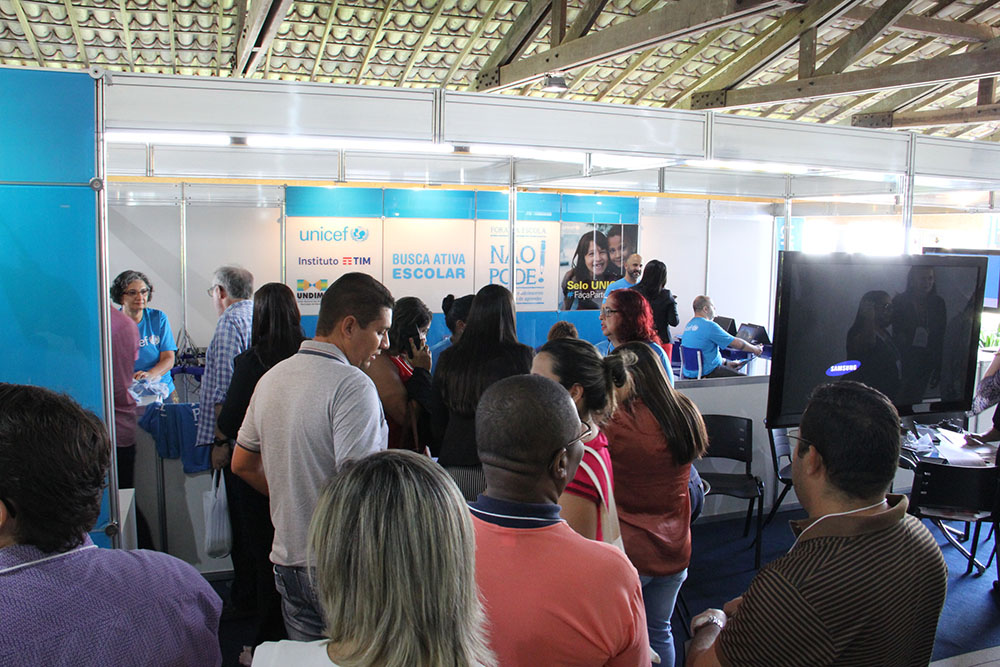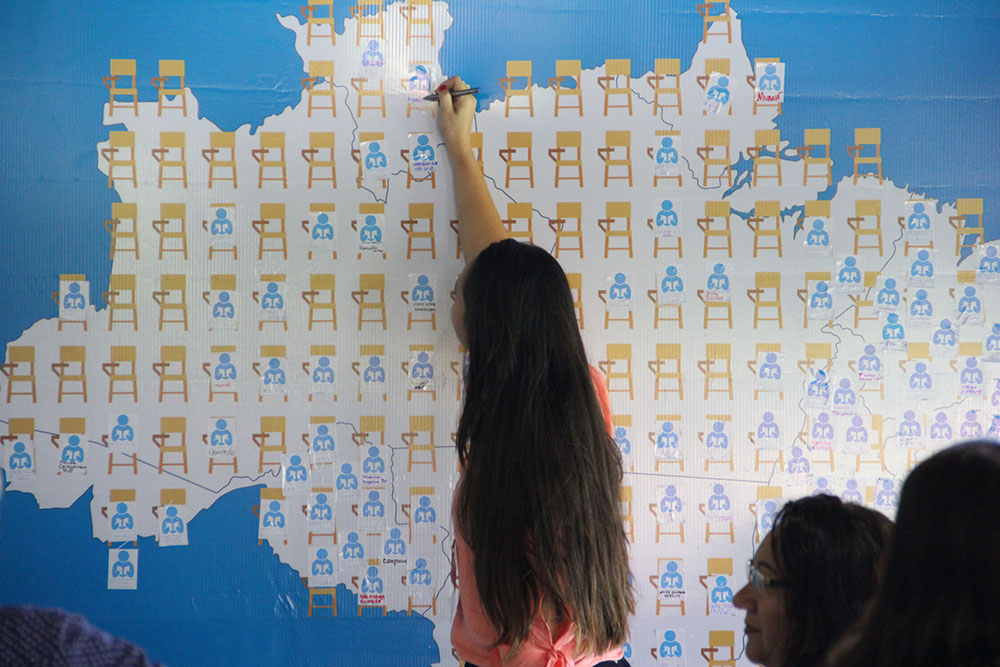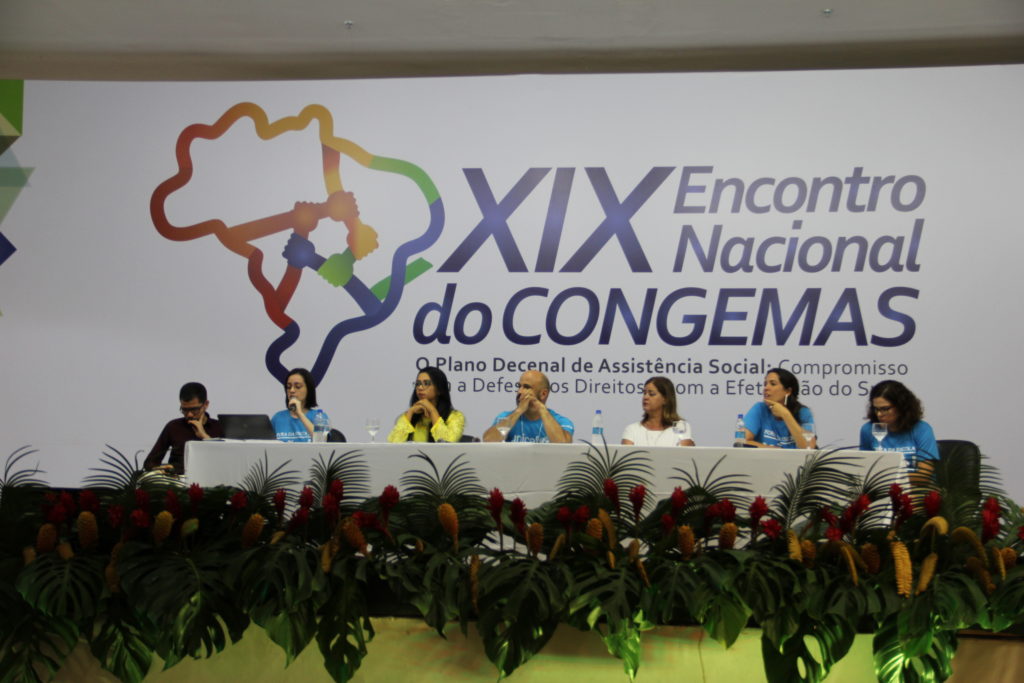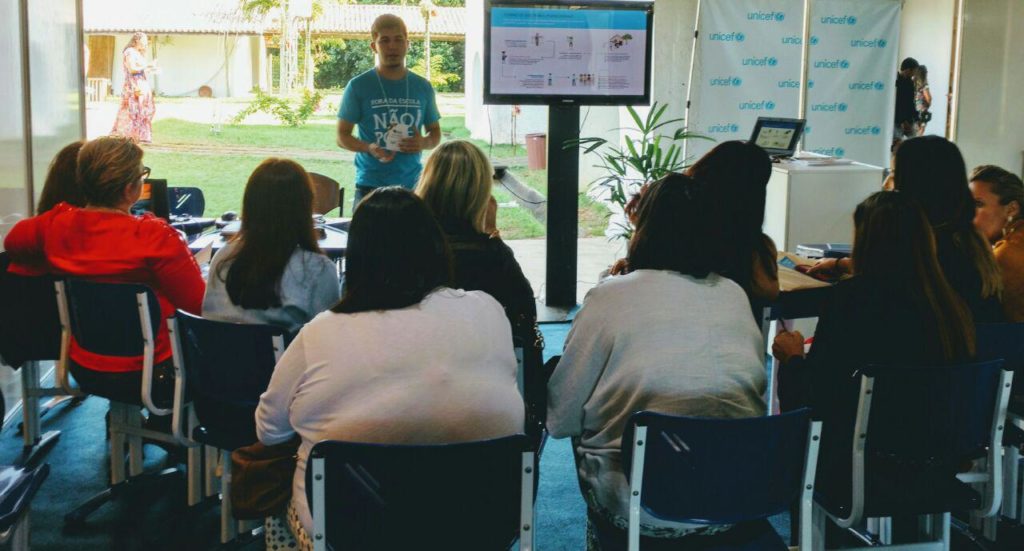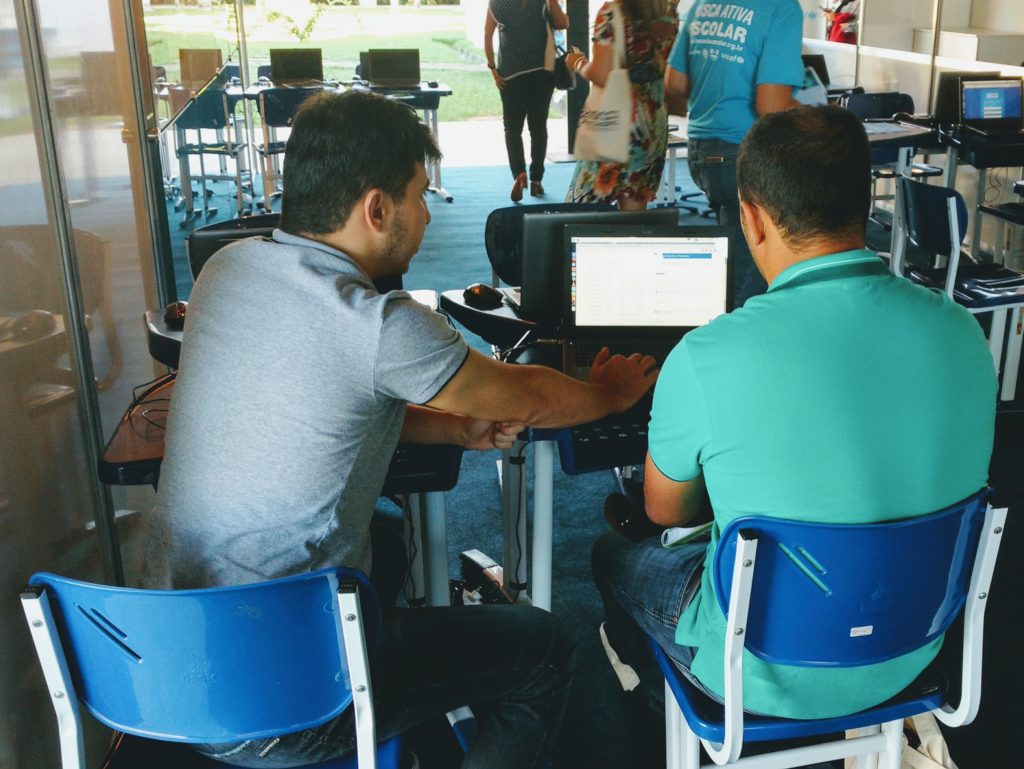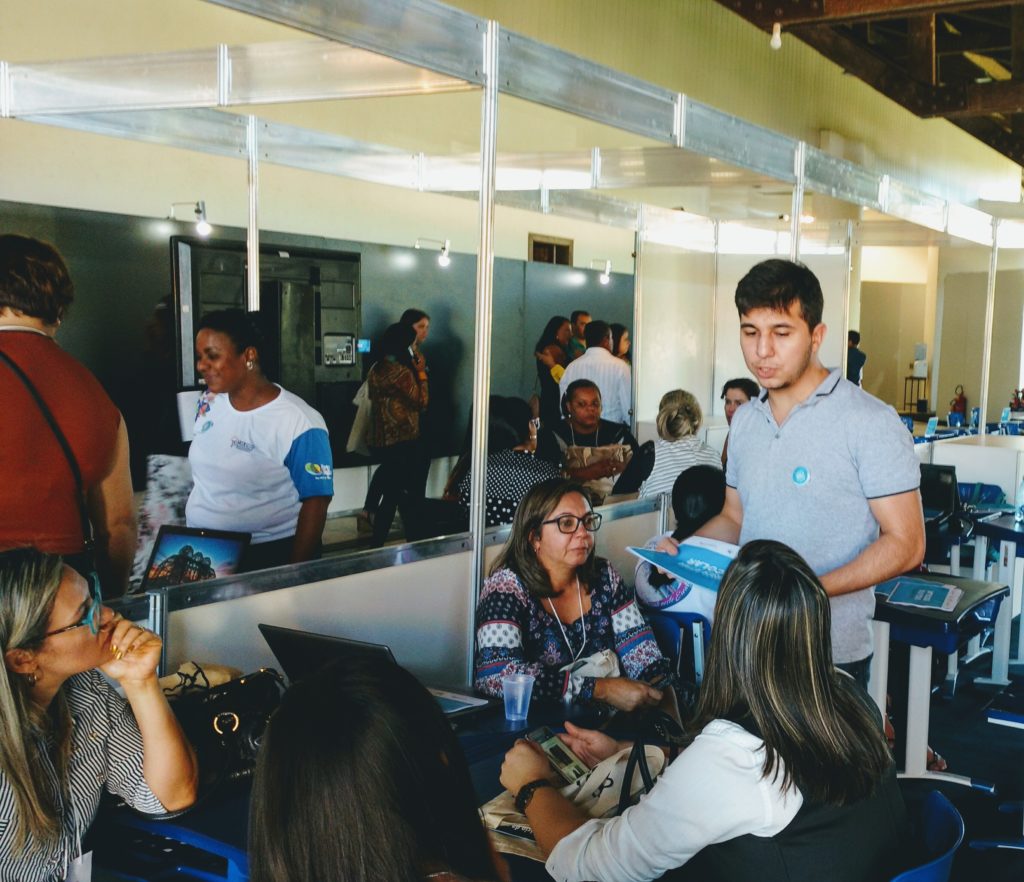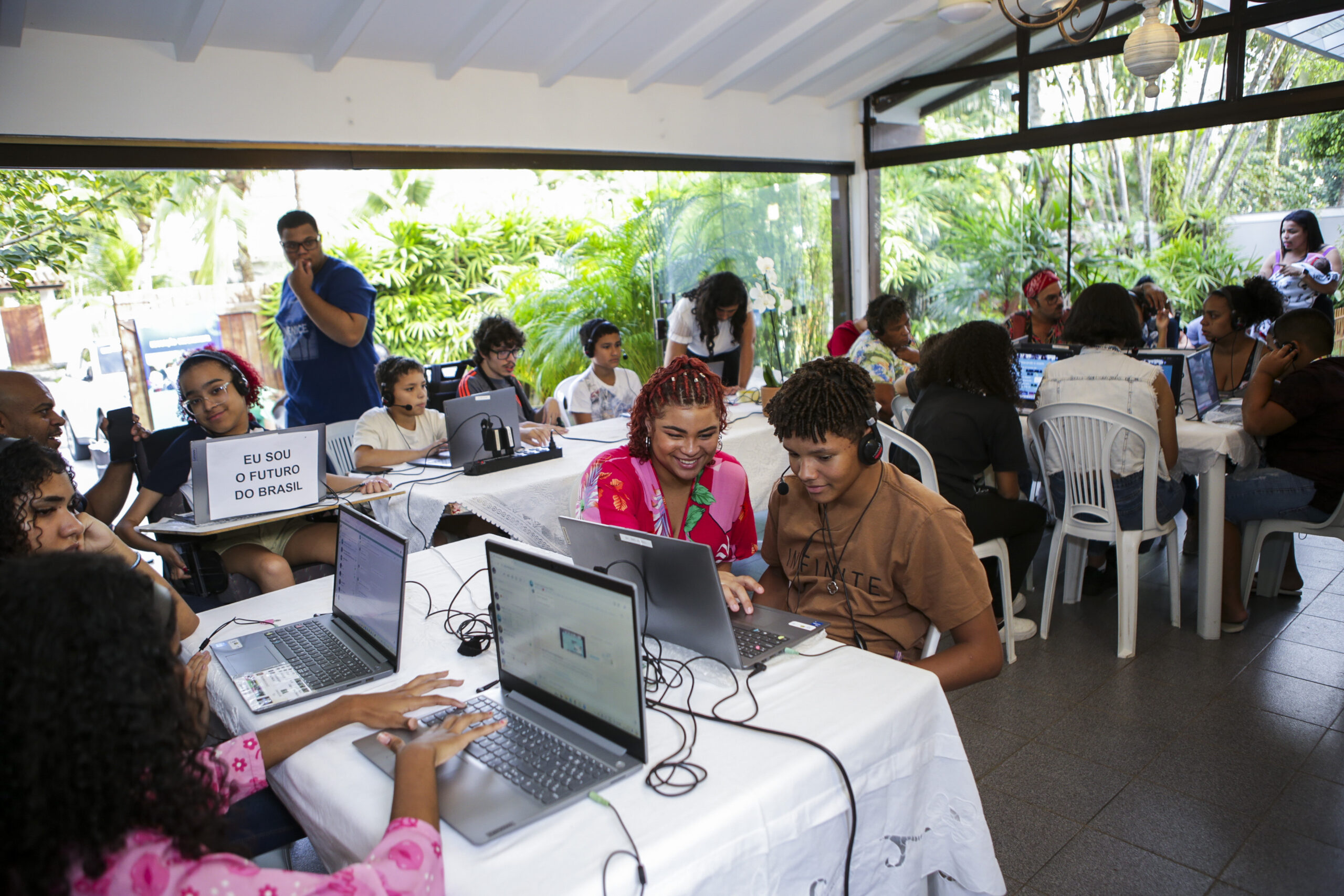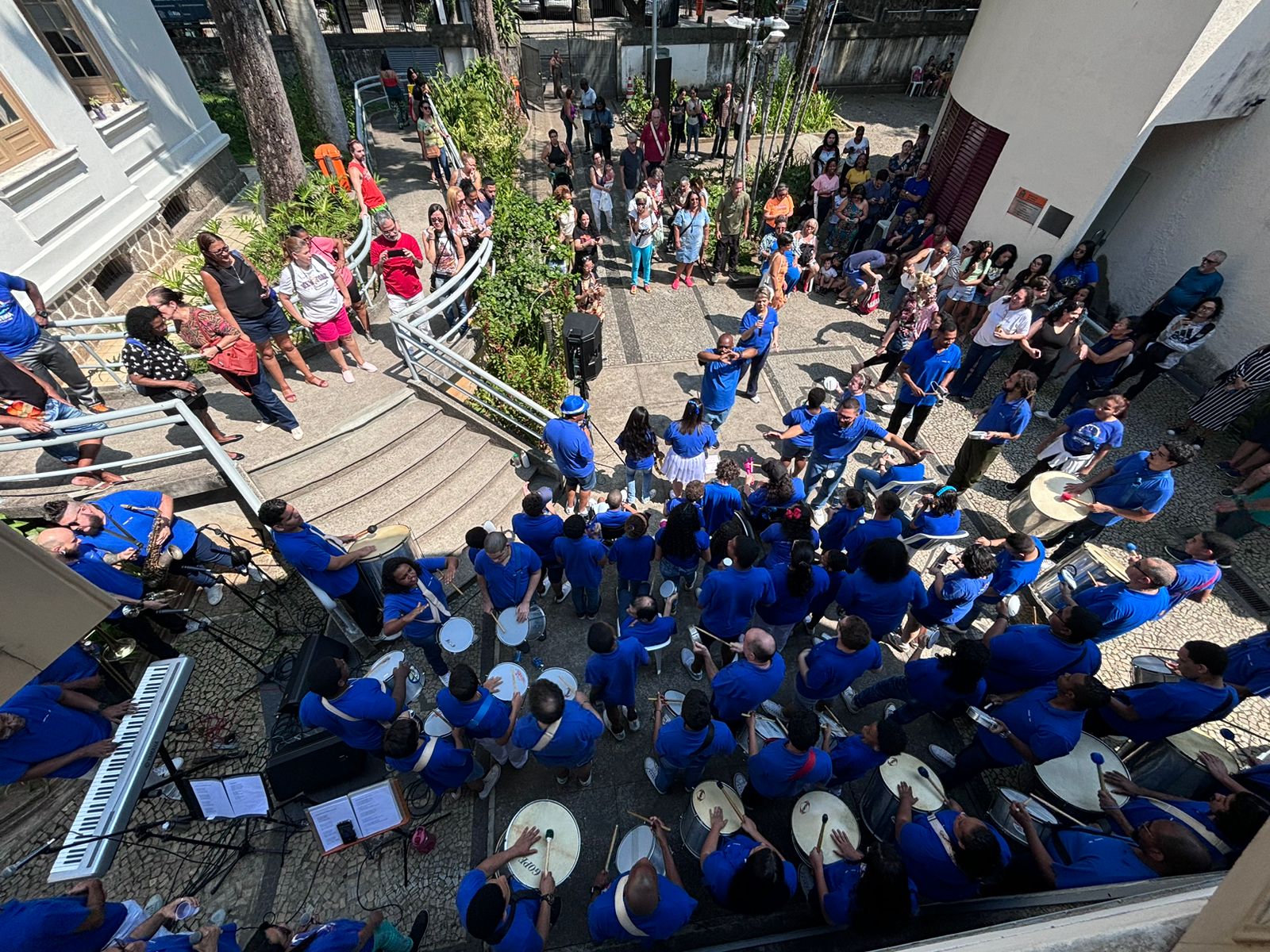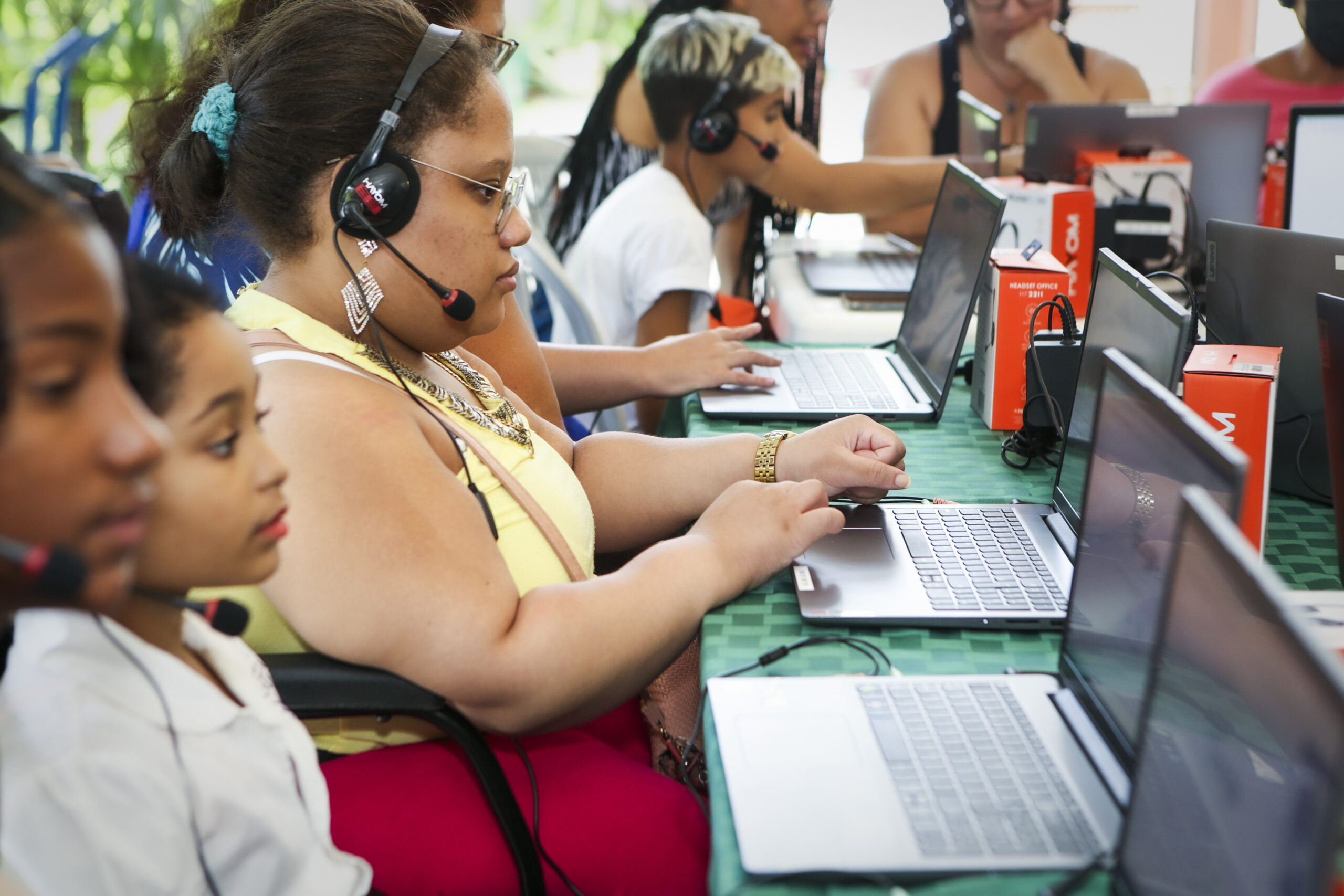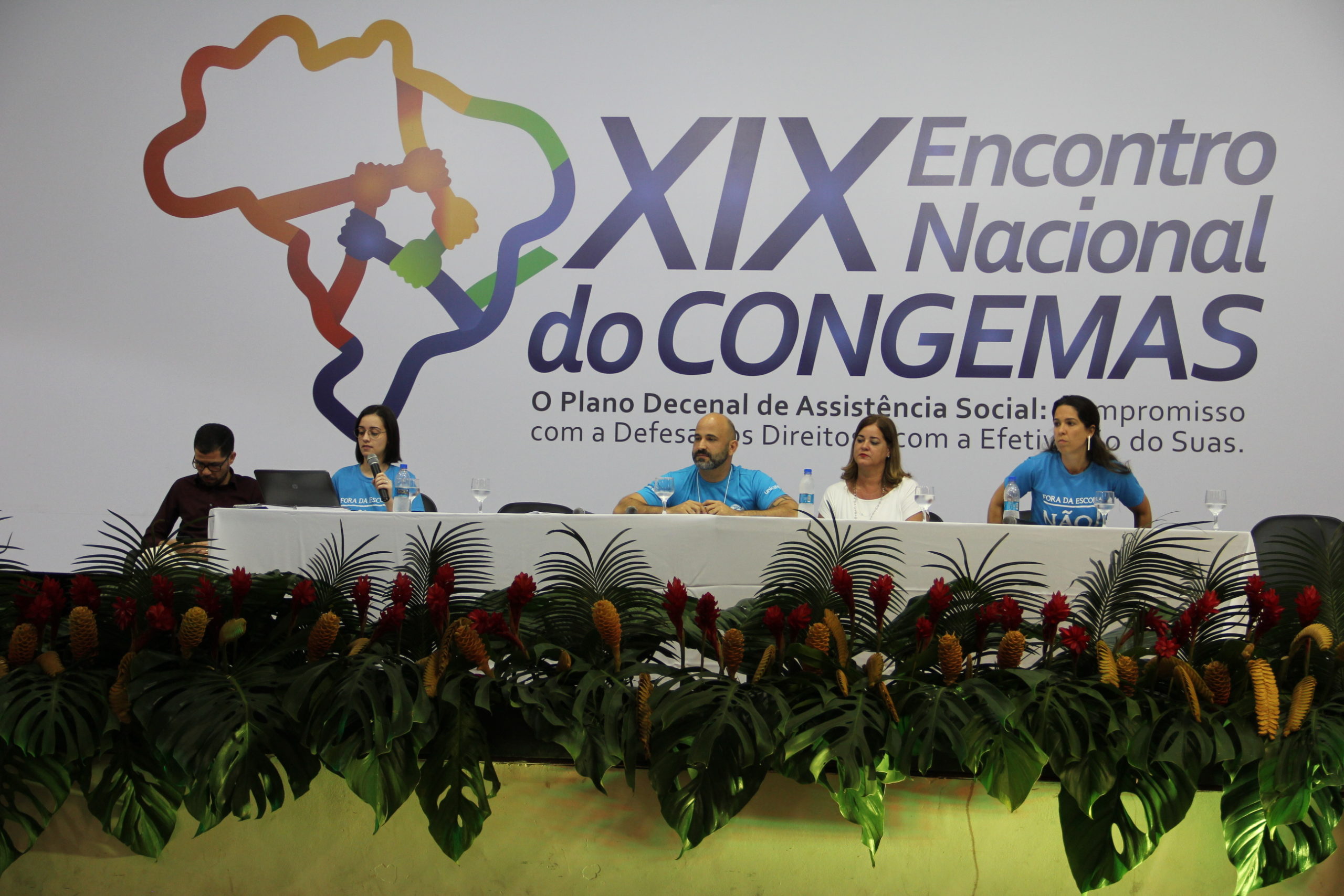
The Busca Ativa Escolar platform was presented to mayors, public managers and social workers from all over the country at the XIX National Meeting of the National Collegiate of Municipal Social Assistance Managers (Congemas), held between June 19 and 21 at the Convention Center of the Federal University Of South Bahia (UFSB), in Porto Seguro. About 1,500 people participated in the congress and were able to learn about the platform at the United Nations Children’s Fund (UNICEF), as well as to attend the presentation of the project strategy on the main stage in the afternoon of June 20th.
Throughout the event, teams from UNICEF, Instituto TIM and National Union of Municipal Managers of Education (Undime) were at the booth to show the Busca Ativa Escolar platform to social assistance managers. Visitors were introduced to the project and platform, and were able to do simulations to understand how it works. The teams answered questions about the solution and told how municipalities could join the initiative. Some mayors joined the platform at the moment they heard about it. T-shirts and project materials were distributed, as well as stickers for people to indicate in a map the municipalities where there are children out of school.
Also, the strategy of the Busca Ativa Escolar platform was presented in a panel, held at 4:00 PM on July 20th in the auditorium of the UFSB Convention Center, attended by about 400 people. UNICEF Brazil’s Head of Education, Ítalo Dutra, started the panel with an analysis of data on out-of-school children and adolescents, based on the IBGE’s National Household Sample Survey 2015 – just like he did on the day of the official launch of the platform and installation of the National Committee for Busca Ativa Escolar, held in Brasilia on June 2nd.
Ítalo explained that the effort of Busca Ativa Escolar is to bring all children to school through a free platform that can help municipalities to understand the causes of the exclusion. “What we present here as a strategy will require an intersectoral articulation. Often, education is the gateway to the guarantee of other rights,” he said. “We need to have dialogue with families in a protected manner, and to involve schools in the monitoring throughout the year,” he added. After Italo’s speech, Julia Ribeiro from UNICEF’s Education Department and Thaís Rigolon from the coordination of the Busca Ativa Escolar project showed how the platform works. “The development of the strategy involved a greatly extended consultation process with municipal managers from different areas,” Julia said.
Among the authorities present at the launch, there were the Secretary of Health of Porto Seguro and member of the National Council of Secretariats for Municipal Health (CONASEMS), Edna Alves; the Secretary of Education of Porto Seguro and Undime representative, Cláudia Regina Melo; the director of Associação Cidade Escola Aprendiz, Natasha Costa; and the former president of Congemas, Valdiosmar Vieira.
